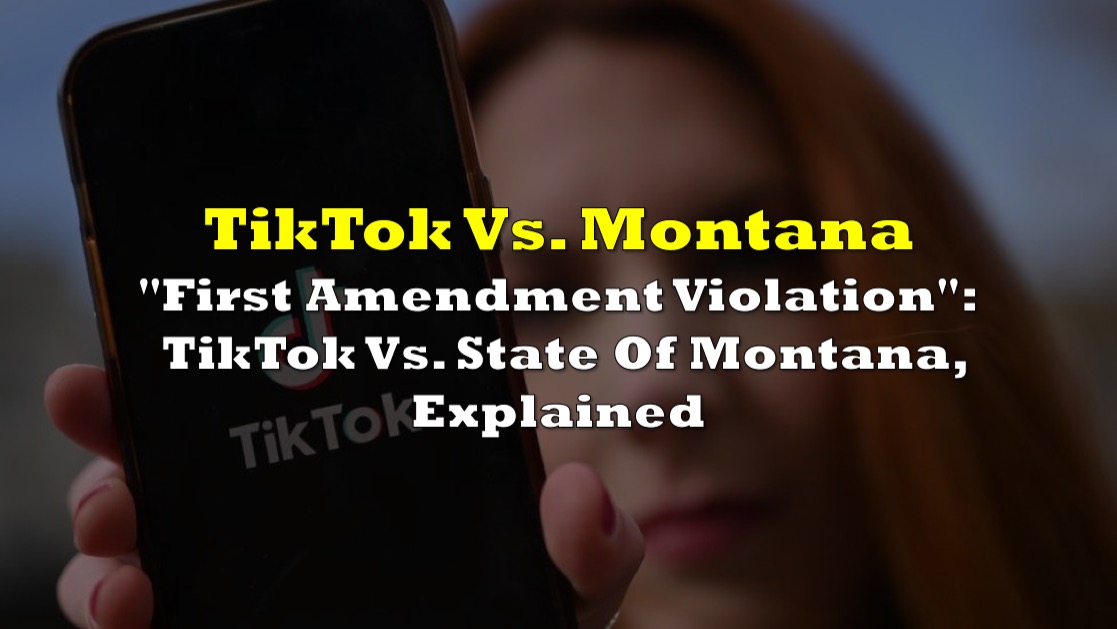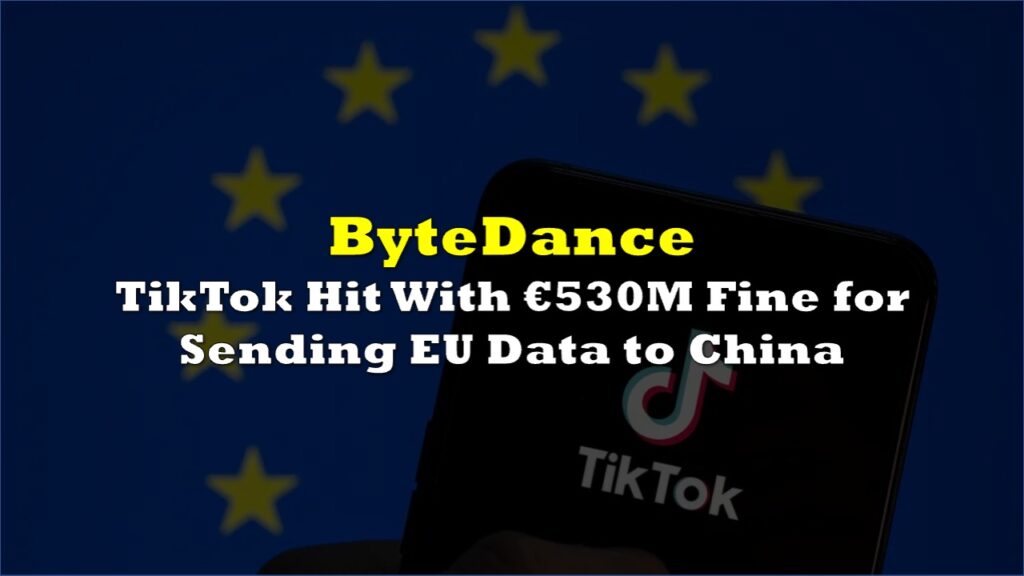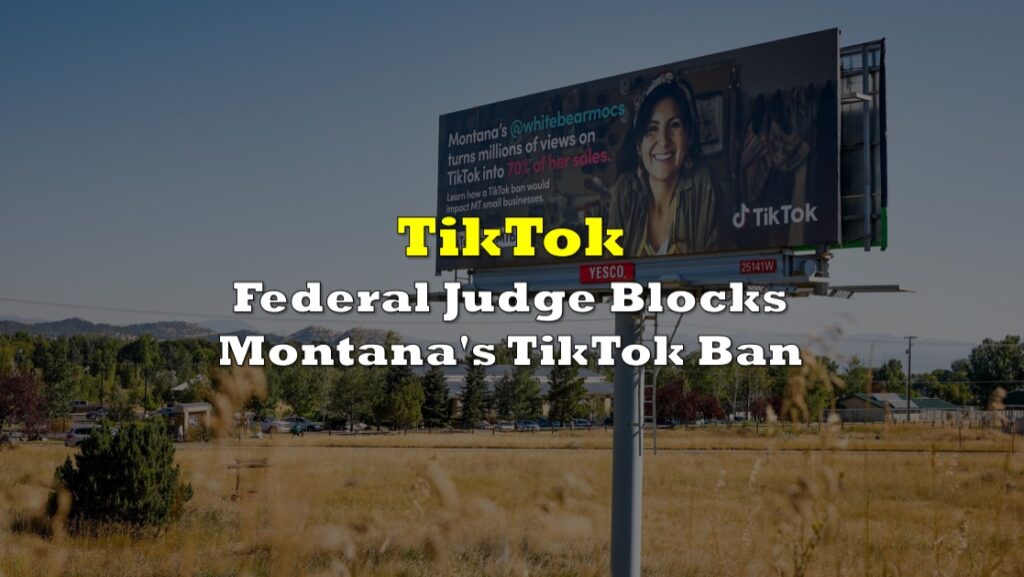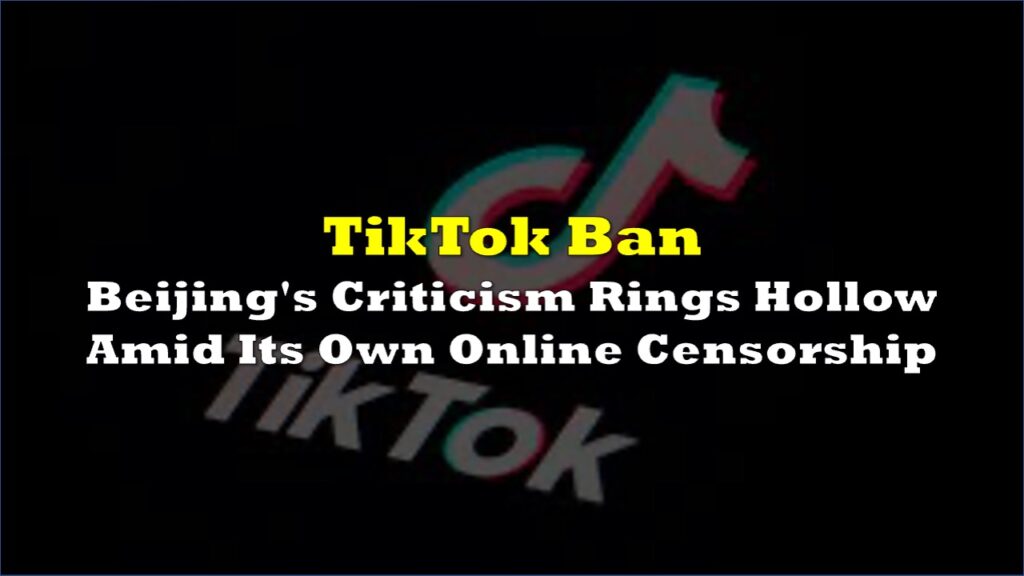TikTok Inc filed a lawsuit challenging the state of Montana’s new restriction on the usage of the Chinese-owned app, the first state to do so.
TikTok claims the prohibition, which goes into force on January 1, violates the company’s and users’ First Amendment rights. The lawsuit, filed in Montana District Court, also claims that the ban is pre-empted by federal law because it intrudes on matters of sole federal concern and violates the Commerce Clause of the US Constitution, which limits states’ authority to enact legislation that unduly burdens interstate and foreign commerce.
“We are challenging Montana’s unconstitutional TikTok ban to protect our business and the hundreds of thousands of TikTok users in Montana,” the firm said in a statement. “We believe our legal challenge will prevail based on an exceedingly strong set of precedents and facts.”
TikTok, which is owned by China’s ByteDance and is used by over 150 million Americans, has been under increasing pressure from US lawmakers and state officials to ban the app nationwide due to worries about potential Chinese government influence over the site.
Montana could punish TikTok $10,000 for each violation and an additional $10,000 per day if it violates the ban. Individual TikTok users are not subject to fines under the law.
Furthermore, the state may impose penalties on Apple and Google if they enable Montana customers to download the program from their respective app stores.
“Montana’s ban abridges freedom of speech in violation of the First Amendment, violates the U.S. Constitution in multiple other respects, and is preempted by federal law,” TikTok said in its lawsuit.
Former President Donald Trump sought to prohibit new downloads of TikTok and Chinese-owned WeChat, a unit of Tencent, as well as related transactions in 2020, which the companies said at the time could have effectively barred US use of the apps, but the bans were blocked by a series of court decisions.
Senator Mark Warner, chairman of the Senate Intelligence Committee, said the possibility of federal courts rejecting Montana’s ban made it even more critical for Congress to enact legislation he presented to give the president broad authority to ban or restrict TikTok and other foreign-owned applications.
TikTok believes that it has hundreds of thousands of active users in the state, which has a population of approximately 1.1 million people.
The company says in its lawsuit that it “has not shared, and would not share, U.S. user data with the Chinese government, and has taken substantial measures to protect the privacy and security of TikTok users.”
TikTok’s complaint names Montana Attorney General Austin Knudsen as the person responsible for enforcing the legislation. On Monday, Knudsen’s office did not immediately respond to a request for comment.
Emily Flower, a Knudsen spokesperson, stated that the state was prepared to face legal action.
“We expected legal challenges and are fully prepared to defend the law that helps protect Montanans’ privacy and security,” she said.
This follows five TikTok users in Montana filing a lawsuit last week in federal court seeking to block the state’s ban.
In addressing the mounting bans, TikTok’s executives are reportedly considering splitting off from ByteDance as a way of addressing worries about potential safety threats.
If the existing plan submitted to the national security authorities is not accepted, the only solution left would be to divest, either through a sale or an initial public offering, people aware of the situation explain. However, the Chinese authorities would have to give the green light to such an arrangement.
TikTok, which is being investigated by the Committee on Foreign Investment in the United States, committed last year to implement a number of security measures in response to US regulators’ concerns. This $1.5-billion lobbying idea, dubbed Project Texas, entails bringing in US IT behemoth Oracle Corp. to hold US user data and assess its software, as well as establishing a three-person government-approved oversight board.
Support for a TikTok ban is growing among the general people in the United States. According to decision intelligence firm Morning Consult, 53% of adults in the United States supported a countrywide ban on Chinese-owned social media applications in December.
According to Jordan Marlatt, a Morning Consult tech sector analyst, Americans aged 18-25 are less concerned about competition from China and more likely to distrust the US government. They also have a more positive attitude toward social media. The survey said less than one-third of respondents in this age bracket supported the prohibition of Chinese social media apps.
Information for this briefing was found via Reuters, Variety, and the sources mentioned. The author has no securities or affiliations related to this organization. Not a recommendation to buy or sell. Always do additional research and consult a professional before purchasing a security. The author holds no licenses.









